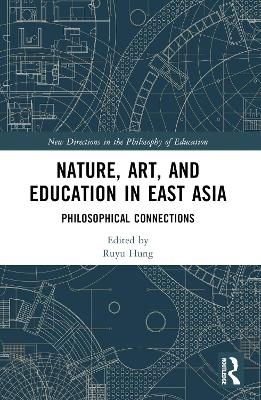
Nature, Art, and Education in East Asia
Routledge (Verlag)
978-1-032-29421-6 (ISBN)
With contributions from authors in South Korea, Japan and Taiwan, the book considers unnoticed but significant themes involved in the interplay of nature, art, and education. It manifests how nature and art can educate, and how education and nature play the role of art. The chapters explore a range of themes relevant to East Asian characteristics, including skill acquisition, Japanese calendar arts and ritual of feelings, garden architecture, the ritualised body, collaborative poetry art, translational language between humans and nature, the Confucian classical Six Arts, the artistic embodiment of the Kyoto School, and the heritage art based education in Korea. The authors examine these themes in novel ways to bring to light the relevance of the East Asian insights to the contemporary global world.
This book is an outstanding resource to all researchers, scholars, and students interested in educational aesthetics, philosophy of education, East Asian studies, comparative education and intercultural education.
Ruyu Hung is Distinguished Professor in the Department of Education, National Chiayi University, Taiwan.
1. Zhuangzi’s Edu-Dào and Dàoful Well-being: Cook Ding and other Craftsmen Revisited 2. Calendar Arts and the Ritual of Feeling 3. The Katsura Imperial Villa and the Educational Function of Japanese Garden Architecture 4. Arts Education for a Translational Experience from Language of Nature into Language of Man: Walter Benjamin’s Theory of Mimesis and Traditional Ink-wash Painting in East Asia 5. From Co-operation to Co-creation: Renga (連歌), Renku (連句), Renshi (連詩), and the Possibility of the ‘Inoperative Community’ 6. The Vision of Nature and Human Beings in Kinji Imanishi’s The World of Living Things: An Anthropological Study of Human Approach to the Environment 7. Sojourning in the Arts: Considering the Implications of the Confucian "Six Arts" in a Contemporary Educational Context 8. Communication through Art: A Perspective on the Embodiment Theory of the Kyoto School 9. Project HANA: Working with Korean Heritage Art in a Museum-School Partnership
| Erscheinungsdatum | 16.12.2022 |
|---|---|
| Reihe/Serie | New Directions in the Philosophy of Education |
| Zusatzinfo | 1 Line drawings, black and white; 3 Halftones, black and white; 4 Illustrations, black and white |
| Verlagsort | London |
| Sprache | englisch |
| Maße | 156 x 234 mm |
| Gewicht | 308 g |
| Themenwelt | Kunst / Musik / Theater ► Kunstgeschichte / Kunststile |
| Geisteswissenschaften ► Philosophie ► Geschichte der Philosophie | |
| Geisteswissenschaften ► Philosophie ► Philosophie der Neuzeit | |
| Sozialwissenschaften ► Pädagogik ► Allgemeines / Lexika | |
| Sozialwissenschaften ► Pädagogik ► Bildungstheorie | |
| ISBN-10 | 1-032-29421-3 / 1032294213 |
| ISBN-13 | 978-1-032-29421-6 / 9781032294216 |
| Zustand | Neuware |
| Informationen gemäß Produktsicherheitsverordnung (GPSR) | |
| Haben Sie eine Frage zum Produkt? |
aus dem Bereich


